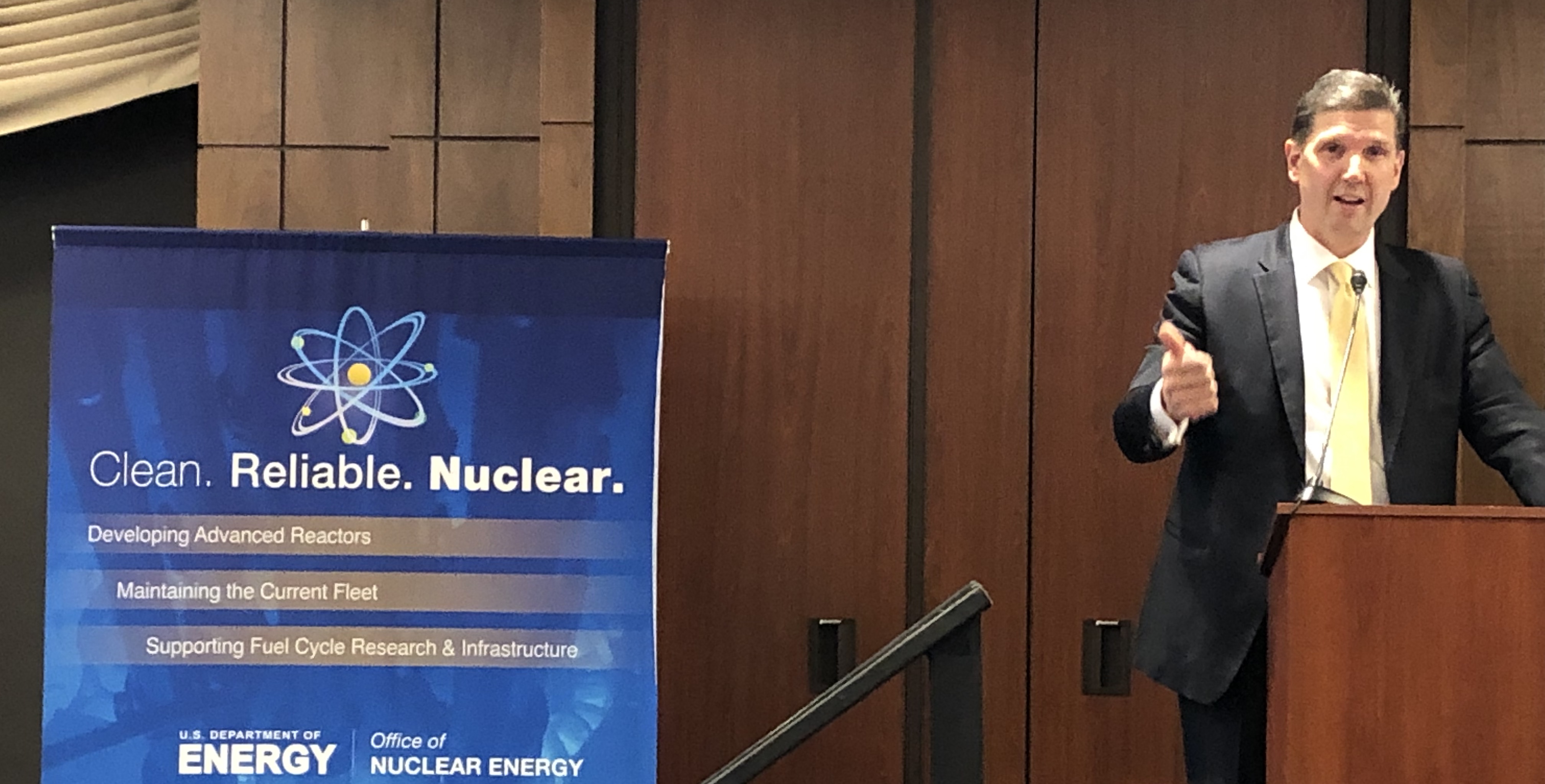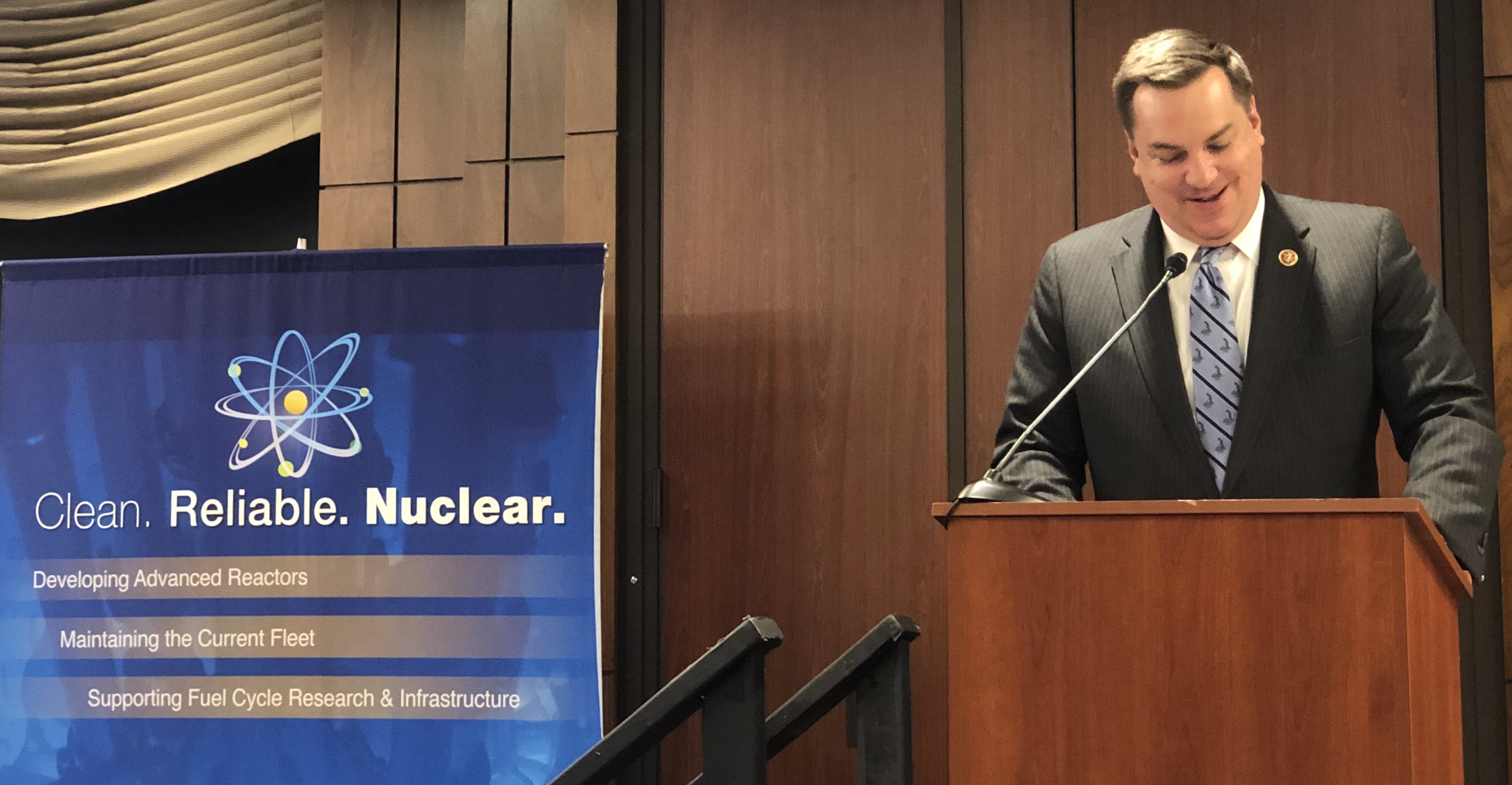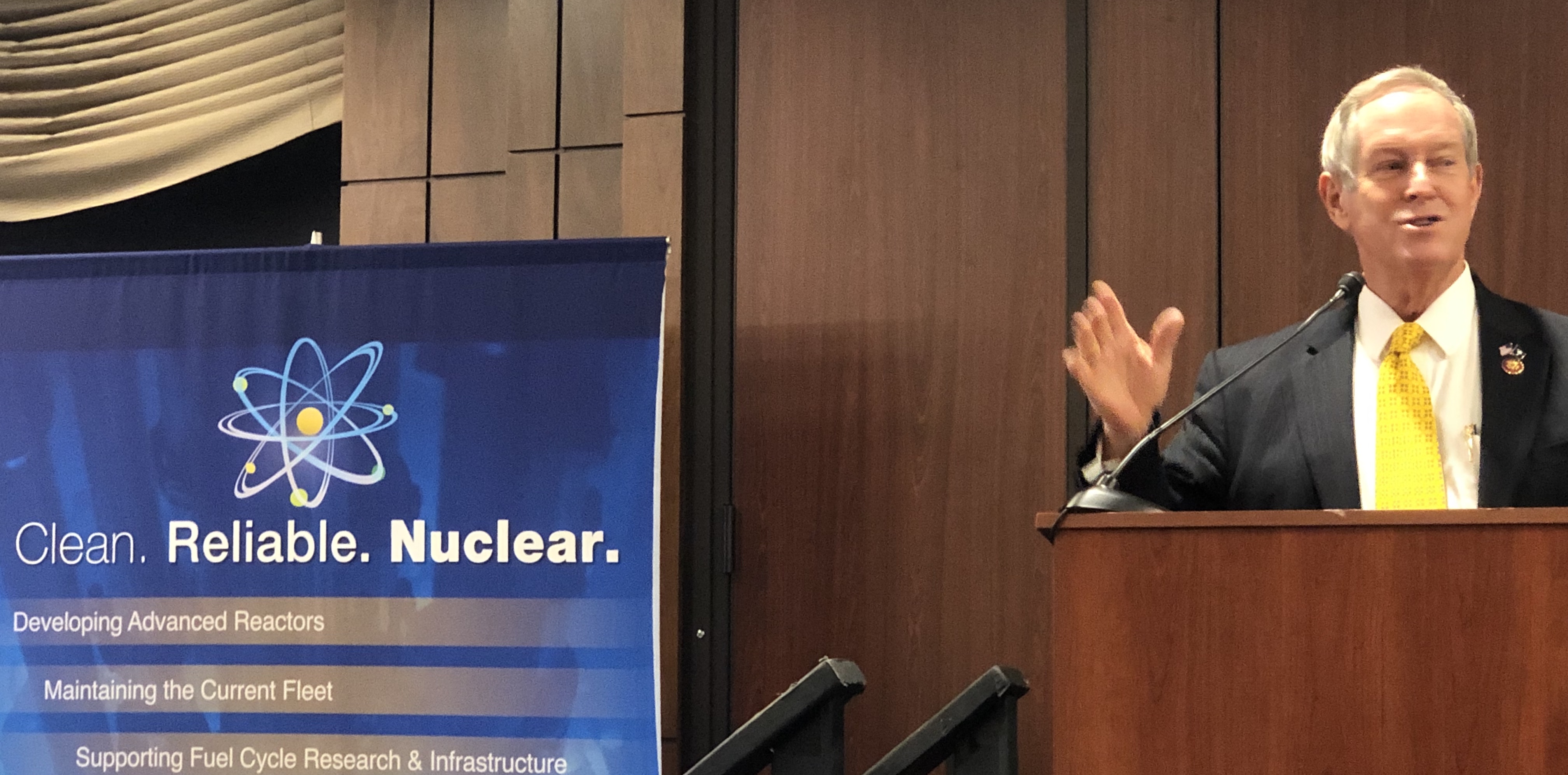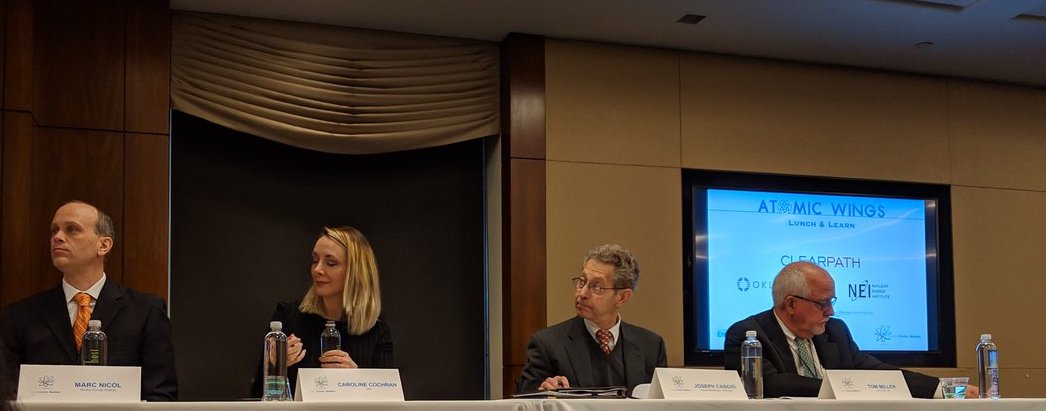
CONGRESS, DOE: MORE TO COME ON ADVANCED NUCLEAR
Expect more from the federal government and private industry this Congress on advanced nuclear.
That was the heart of a discussion on microreactors at the latest Atomic Wings nuclear power briefing co-hosted by the Department of Energy and ClearPath this week.
DOE Principal Deputy Assistant Secretary for Nuclear Energy Ed McGinnis said we may see the first microreactor company this year submit a licensing application to the Nuclear Regulatory Commission. That company would follow in the footsteps of NuScale Power, which submitted the first small modular reactor design for review and is steadily progressing toward NRC certification.

Rep. Richard Hudson (R-N.C.) said lawmakers aren’t done yet either. “It’s paramount that we continue to build off of last year’s successes,” he said, referencing the suite of nuclear policies that were enacted in the 115th Congress. That means you can expect more from the House Energy and Commerce Committee, he added, including legislation to “help ensure regulatory and fuels infrastructure that’s needed for advanced reactors to thrive is there.” This is one area “I truly believe” can secure bipartisan support in divided government, Hudson said.
Hudson and Rep. Joe Wilson (R-S.C.) were among those leading a successful bipartisan effort last Congress to get into law language requiring DOE to study a pilot program to site microreactors on military and DOE national security sites.
That could also lead to these microreactors being used in remote places, from Alaska to Guam, Wilson said at the Atomic Wings briefing.

He added that it remains a bipartisan agenda, specifically calling out Rep. John Garamendi (D-Calif.) as a partner. “He and I both are just so enthusiastic about small modular reactors,” Wilson said.
Rep. Chuck Fleischmann (R-Tenn.), a member of the House Energy and Water Appropriations Subcommittee, highlighted efforts at Oak Ridge National Lab and said microreactors “could be a new American industry.”
One of those companies striving for that breakthrough is Oklo, whose co-founder Caroline Cochran stressed that their passion is to serve remote communities first, with the promise that the electric grid is “going in the hands of communities” that may face a shorter and dirtier list of energy source options currently. But that is just one slice of a hugely promising U.S. and global microreactor market. “This is a market big enough for all of these developers,” Cochran said.

George Washington University’s Joseph Cascio detailed a study conducted by the university’s Environment & Energy Management Institute and incoming Assistant Secretary of the Army for Installations, Energy and Environment Alex Beehler laying out a roadmap for microreactor deployment at military facilities.
|